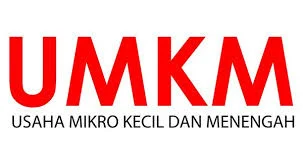Government Prepares Fiscal Strategy for MSME Sustainability
By: Jauhari Firdaus Basam
In facing global economic challenges, the government continues to demonstrate a strong commitment to support the sustainability of micro, small, and medium enterprises (MSMEs). Fiscal strategy is one of the main instruments in ensuring that MSMEs are able to survive and grow, along with their important role in the national economy.
One of the concrete steps taken by the government is to extend the validity period of the final income tax (PPh) rate of 0.5% for individual taxpayers (WP OP) of MSMEs. This policy, which was originally scheduled to end in 2024, has now been extended to 2025. This stimulus is given specifically to MSMEs that have been registered in accordance with Government Regulation (PP) Number 55 of 2022. In addition, the government exempts PPh payments for MSMEs with a turnover of less than IDR 500 million per year. This policy not only lightens the tax burden but also provides space for MSMEs to allocate their resources to increase productivity.
Finance Minister Sri Mulyani said the importance of fiscal policies that pay attention to the principles of mutual cooperation and justice. She also emphasized that tax incentives for 2025 are mostly directed at households and the business sector, including MSMEs. This policy reflects the government’s sensitivity to the needs of the business world and economic actors, while maintaining economic stability.
In addition to tax incentives, the government also provides incentives in the form of exemption from import duties and reduction of sales tax on luxury goods (PPnBM) for battery-based electric motor vehicles (KBLBB) and hybrid vehicles. This policy not only encourages the green energy transition but also opens up opportunities for MSMEs to be involved in the electric vehicle industry supply chain.
Head of the Fiscal Policy Agency (BKF) of the Ministry of Finance, Febrio Kacaribu, said that the government continues to prioritize the sustainability of MSMEs through various economic stimuli with a number of regulatory simplifications. Starting from Government Regulations (PP) to Regulations of the Minister of Finance (PMK) are expected to accelerate the implementation of policies that directly touch the needs of MSMEs.
This step is part of the government’s grand strategy to increase the competitiveness of MSMEs and cooperatives. In addition, increasing the capacity of human resources (HR) of MSME actors is also a priority. The government is optimistic that the combination of economic stimulus policies and increasing HR capacity will be an important foundation in maintaining the sustainability of the national economy.
Economic observer from INDEF, Ariyo DP Irhamna appreciates the government’s policy in providing incentives and stimulus to maintain economic stability. However, he reminded the importance of ensuring that social assistance and incentive programs are truly effective and on target, such as their use for infrastructure development, education, or other public services so that the community benefits.
He also stressed the need for a more comprehensive fiscal strategy to support the sustainability of MSMEs and provide space for the formal sector to survive. The synergy between fiscal policy and social assistance programs is expected to create a sustainable positive impact on the economy.
The government’s policy in supporting MSMEs is not only aimed at maintaining business continuity, but also to encourage MSMEs to move up a class. With various stimuli provided, MSMEs are expected to be able to increase competitiveness and expand the market. In addition, the government is also trying to create a conducive business ecosystem through simplifying regulations and providing relevant incentives.
As the backbone of the national economy, MSMEs play an important role in creating jobs and driving the economy. Therefore, consistent government support is the main key in ensuring that MSMEs can continue to grow amidst various challenges. Strategic steps taken by the government, such as extending tax incentives and simplifying regulations, demonstrate a strong commitment to creating an inclusive and equitable business climate.
Support for MSMEs is a shared responsibility. Therefore, all parties, including the community, business world, and local governments, need to work together to support government policies. With the spirit of mutual cooperation, we can create a stronger and more competitive business ecosystem.
Let us support the government’s policy in empowering MSMEs and encouraging them to move up a class. This step will not only strengthen the national economy, but also improve the welfare of society evenly. Together, we can create a brighter future for Indonesian MSMEs.
)* The author is a Macroeconomics journalist
